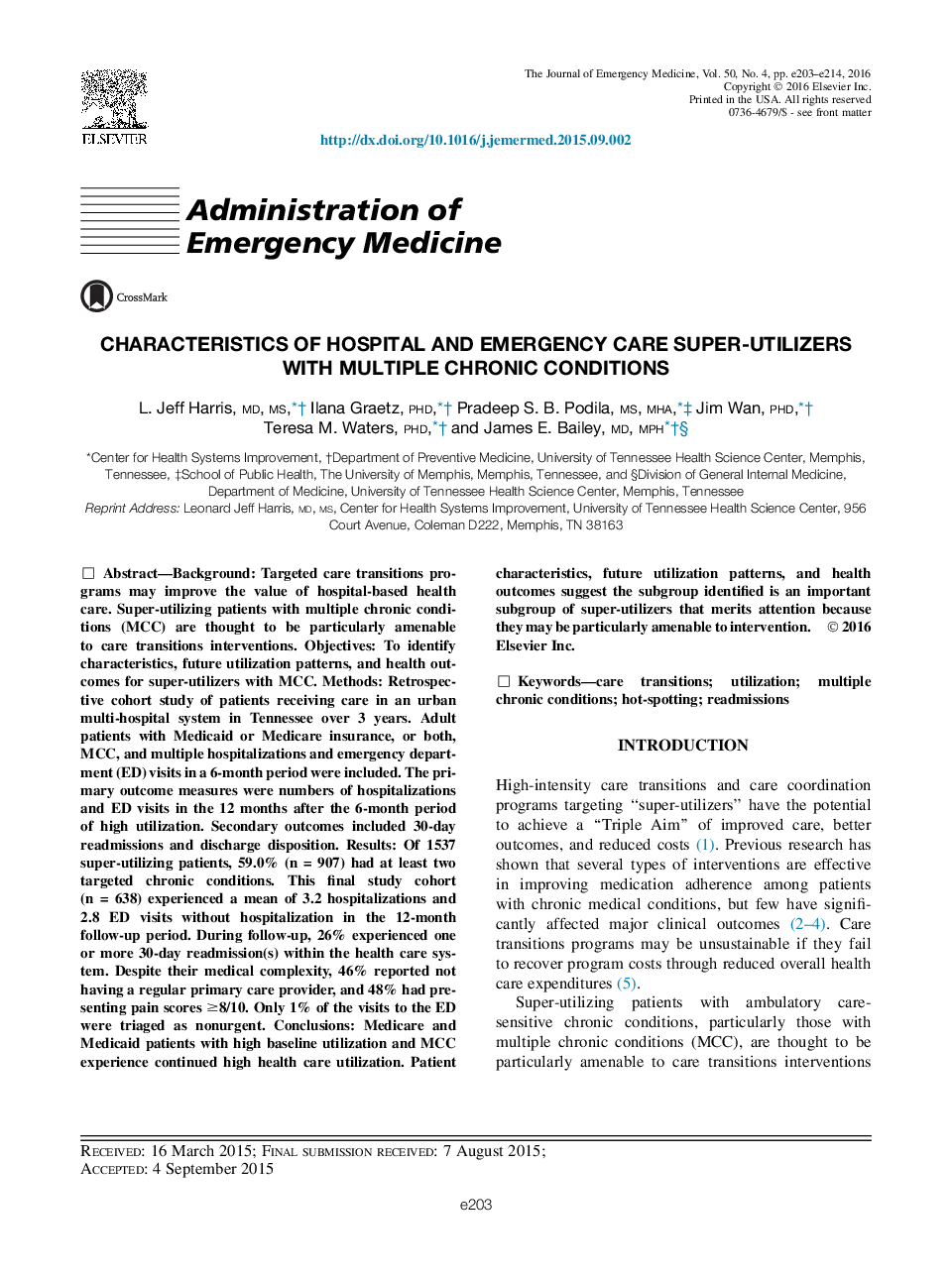| Article ID | Journal | Published Year | Pages | File Type |
|---|---|---|---|---|
| 6084691 | The Journal of Emergency Medicine | 2016 | 12 Pages |
BackgroundTargeted care transitions programs may improve the value of hospital-based health care. Super-utilizing patients with multiple chronic conditions (MCC) are thought to be particularly amenable to care transitions interventions.ObjectivesTo identify characteristics, future utilization patterns, and health outcomes for super-utilizers with MCC.MethodsRetrospective cohort study of patients receiving care in an urban multi-hospital system in Tennessee over 3 years. Adult patients with Medicaid or Medicare insurance, or both, MCC, and multiple hospitalizations and emergency department (ED) visits in a 6-month period were included. The primary outcome measures were numbers of hospitalizations and ED visits in the 12 months after the 6-month period of high utilization. Secondary outcomes included 30-day readmissions and discharge disposition.ResultsOf 1537 super-utilizing patients, 59.0% (n = 907) had at least two targeted chronic conditions. This final study cohort (n = 638) experienced a mean of 3.2 hospitalizations and 2.8 ED visits without hospitalization in the 12-month follow-up period. During follow-up, 26% experienced one or more 30-day readmission(s) within the health care system. Despite their medical complexity, 46% reported not having a regular primary care provider, and 48% had presenting pain scores â¥8/10. Only 1% of the visits to the ED were triaged as nonurgent.ConclusionsMedicare and Medicaid patients with high baseline utilization and MCC experience continued high health care utilization. Patient characteristics, future utilization patterns, and health outcomes suggest the subgroup identified is an important subgroup of super-utilizers that merits attention because they may be particularly amenable to intervention.
